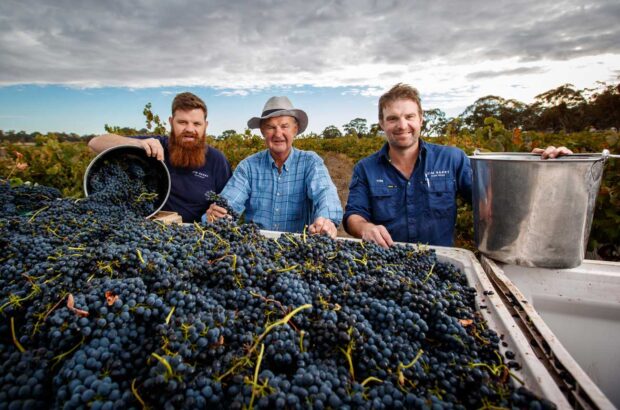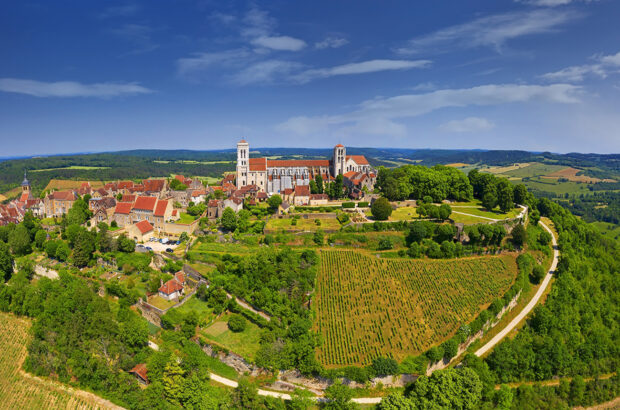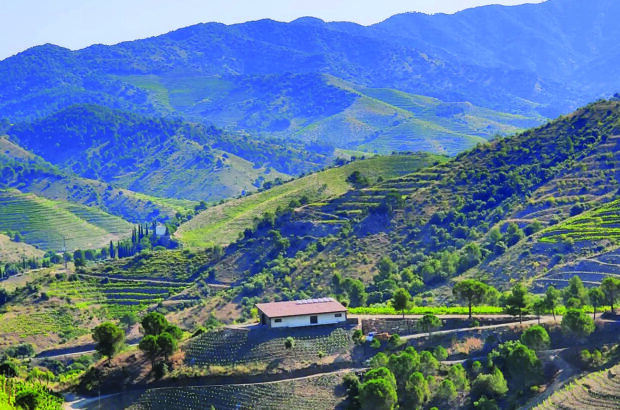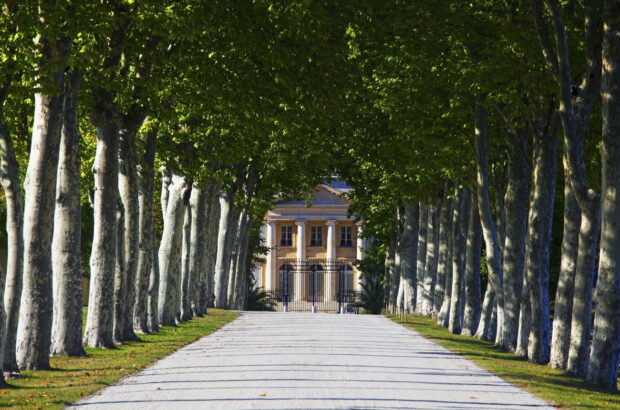I’d visited Kakheti, Kartli and Imereti before – Georgia’s dominant central wine-producing zones; but never the wild exterior. From the ice-crisped cemetery grass of the 11th-century church of St George, dominating the mountaintop village of Mravaldzali, we looked north across the mountains of the Greater Caucasus, Europe’s highest. The silence, and the vista, was daunting. Hundreds of dry, drab valleys lost themselves in as many snowy peaks. Russia lay beyond. There was, apparently, a way over: the Mamisoni pass. But you’d need a strong horse. And a compelling motive, too.
Racha is not a large wine-growing region – just 609ha. The quality of its vineyards and its own suite of indigenous varieties (notably the red Aleksandrouli, Mujuretuli and Usakhelouri, and white Rachuli Mtsvane, Tsolikouri and Rachuli Tetra) make it a source of growing interest, and many of Georgia’s larger wine enterprises have hurried to acquire vineyards here in recent years.
But there’s a problem. The best-known wine from Racha is the sometimes charming but rarely complex, semi-sweet PDO red Khvanchkara. It sells for high prices – in Russia. Most of those buying land here did so to make Khvanchkara… but since the 2022 invasion of Ukraine, Georgians are more troubled than ever by sales to this particular client. Russian war crimes in Ukraine aside, the loss of Abkhazia and Tskhinvali/South Ossetia to Russian-backed separatists is still fresh in Georgian minds. Why slake the thirst of a vicious, expansionist neighbour?
In 2021, wine exports from Georgia amounted to 107 million bottles (according to its national wine agency) – and Russians took 62 million of those. The situation is not only uncomfortable, but it also holds Georgian wine developments in check. Contemporary Georgian wine can only flourish if it develops long-term responsive relationships with consumers who value dry wines of texture, finesse and nuance.
Some Georgian wine companies, like Tbilvino, have turned their backs entirely on the Russian market. Others are diverting a percentage of their profits to the Ukrainian cause – so that Russian drinkers unwittingly help frustrate Putin’s unprovoked invasion. Pending significant change in Russia, though, Georgia’s wine future must surely lie elsewhere.
There was a notice pinned to the gate: Gogi, it said in Roman script, plus a phone number. We phoned, and Gogi Margvelidze arrived. He refused to let us in at first, since we said we could only make a short visit; visits in Georgia aren’t meant to be short. Point made, he smilingly relented. He showed us the hazel-wood treading tanks, earth-buried qvevris (called churi here) and ancient implements in his marani (wine cellar). We drank chill water from the deep well, and ate rich Racha walnuts whose shells are soft enough to crush by hand. Gogi poured us tumblerfuls of Tetra and Aleksandrouli.
It was easy to make semi-sweet wine, he said, when the winter cold lasted until April’s end; now the climate was warmer, the wines tended to ferment dry. They were rough – but in Gogi’s effortlessly structured Aleksandrouli, in particular, you could see Racha’s potential.
So, too, at newer wineries – such as Naberauli, where the California-trained Giorgi Tevzadze is winemaker; Gonadze Vineyards, advised by Davit Maisuradze, one of Georgia’s leading winemakers and from Racha himself; and Melitoni, run by the young winemaking descendents of a famous Racha winemaking couple from the mountain heights of Mravaldzali.
Outside, up on the hillsides, orange persimmons punctuated the bare woods; hard yet sweet little round pears littered the vineyard edges. There’s still winter to get through, but spring will come to Racha.
In my glass this month
A change in Georgian legislation means that Racha region fruit must now be fermented locally – so Tsinandali’s Mujuretuli 2020 is grown from new Kakhetian plantings of this ancient Racha variety. Dark berry fruits glow in the glass, while the palate seems to glow, too: soft, ripe and tender, yet with an inner energy and natural articulation; the textures owed more to extract than to tannin. Sumptuous, digestible Georgian red.













